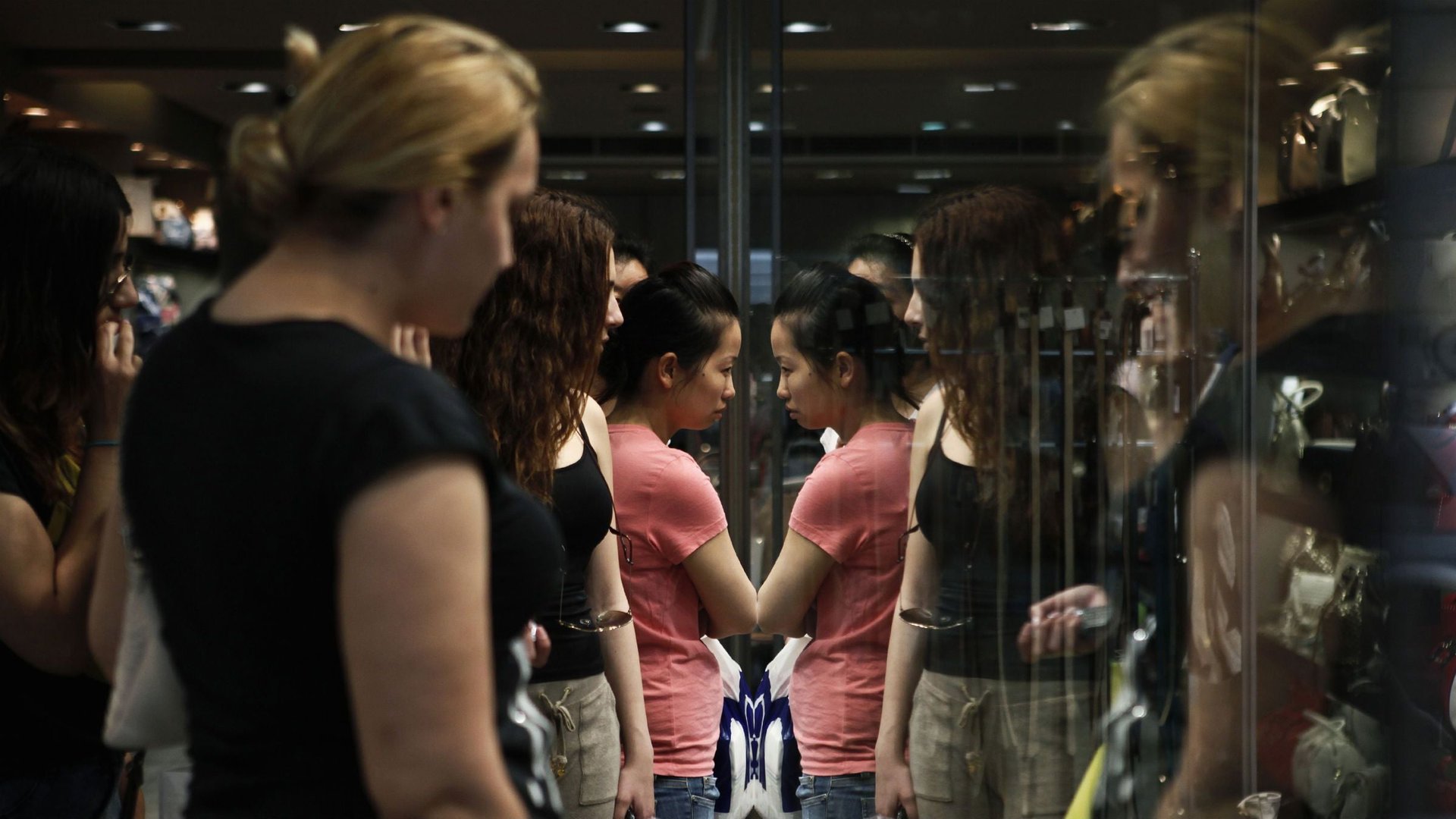The case for paying female retail workers at least $25,000
Even at the mall or a discount store, where women are courted and catered to, they are paid less than men.


Even at the mall or a discount store, where women are courted and catered to, they are paid less than men.
Women in US retail jobs earn on average $4 an hour less than men, or 72 cents for every dollar men make, according to a new report by Demos, a liberal nonprofit public policy organization. The overall pay gap for women in the US is around 80 cents.
Women, who hold 48.7% of US retail jobs, represent 55.4% of the low-wage jobs, Demos said. Last year, a report by insight agency 24/7 Wall St. found retail sales to be the second worst occupation in terms of pay gap, right after insurance: women in retail earn less, and are less likely to sell expensive, commission-generating items such as cars.
The wage gap in retailing costs US women $40.8 billion in lost wages annually, according to Demos, which estimated that 1.3 million women, or one in five women in US retail jobs, earns at or near poverty levels. Retailing is important because it accounts for more jobs than any other sector, and it’s growing. Median pay for the job is $10.29 an hour, or $21,410 a year, according to government data, with the lowest paid earning below $8.09 an hour and only the highest 10% paid more than $18.73.
Increasing the workers’ pays to an average of $25,000 a year would benefit retailers: the 5.7 million men and women workers would spend most of the extra income at stores, Demos said, and the country’s GDP could increase by as much as $15.7 billion. The cost of raising wages, up to a 27% increase for those on the lower end of the pay spectrum, would be less than 1% of the $4.3 trillion in US yearly retail sales, or less than major retailers spend each year to buy back stock, says Amy Traub, the report’s author. “A raise to retail workers would boost sales by about $5 billion” a year, she added.
The report comes out as Walmart Moms plan to take their case for higher wages to the retailer’s annual meeting on Friday.
Walmart spokesman Kory Lundberg said the Demos report was based on “furthering their agenda rather than on facts and hard data.” He added that “Walmart provides associates with more opportunities for career growth and greater economic security for their families than other companies in America,” pointing out that full and part-time workers are eligible for bonuses based on how their store performs, as well as health benefits and more.
Demos found low wages for women to be a big issue, but only half the problem. The other half: insufficient hours and an unpredictable schedule, Traub said in a media call. Retailers consider it “Just in Time scheduling“ that is based on demand and other factors that may change dramatically. “It’s difficult to plan child care or elder care or even schedule a doctor’s appointment” when your schedule fluctuates a lot, she noted.